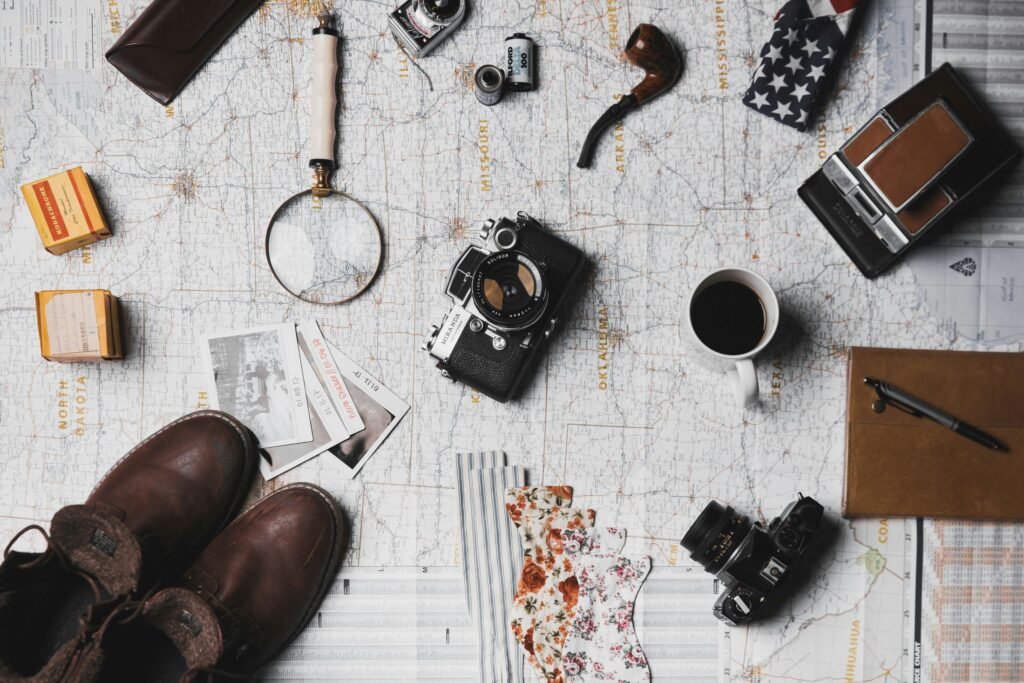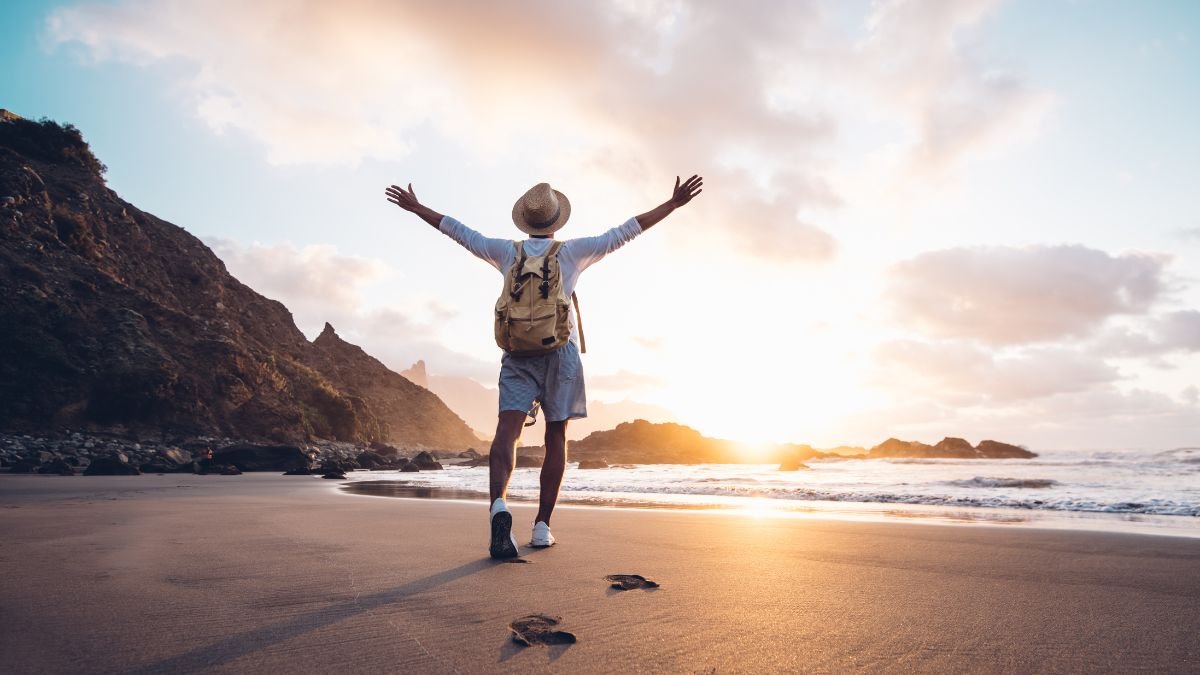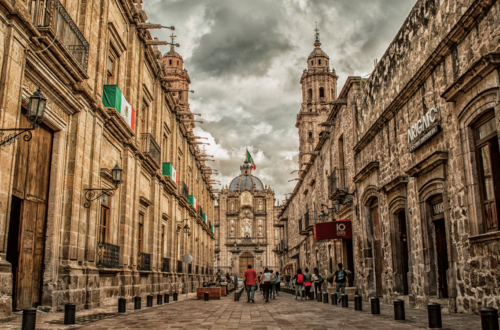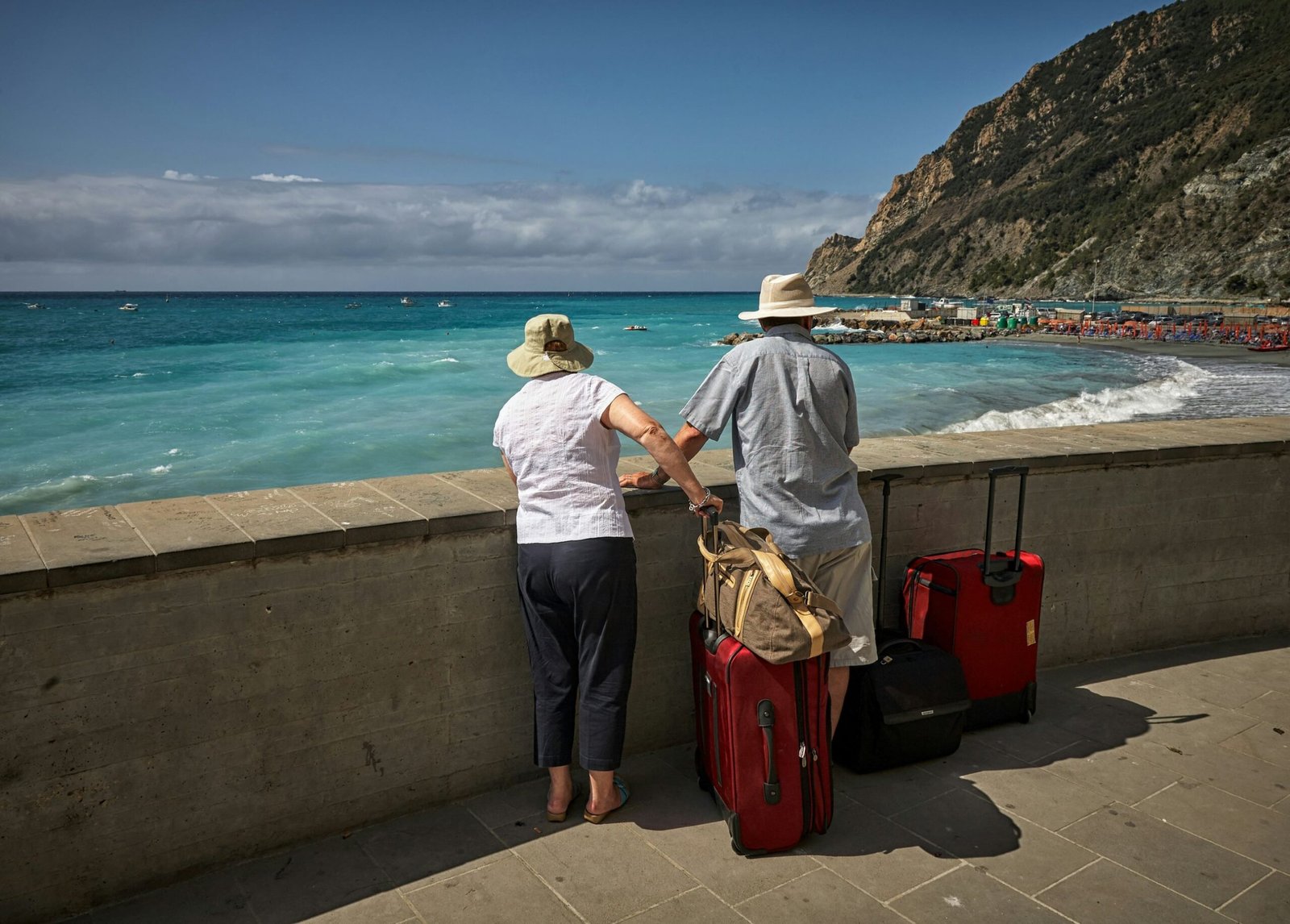Table of Contents
Introduction
Traveling solo can be an incredibly empowering and transformative experience, offering you the freedom to explore the world on your own terms. Without the need to accommodate the preferences of others, you can go at your own pace, make spontaneous decisions, and immerse yourself in new destinations in a way that feels deeply personal. This kind of travel not only allows you to discover the beauty of the world but also provides the opportunity for self-discovery, helping you learn more about your strengths, interests, and what truly excites you. Whether you’re embarking on a short trip or a long journey, traveling alone can also help you develop resilience, independence, and confidence.
However, solo travel comes with its own set of challenges. From staying safe to planning your itinerary, there are important considerations to keep in mind to ensure that your adventure is as enjoyable and rewarding as possible. In this comprehensive guide, we’ll walk you through how to make the most of your solo travel experience, offering tips and advice on everything from preparation and safety to embracing the freedom and joy that come with exploring the world on your own. So whether you’re a seasoned solo traveler or a first-timer, this guide will help you navigate the ups and downs of solo exploration while making the most of the incredible journey ahead.
1. Embrace the Freedom
One of the most powerful aspects of solo travel is the unparalleled freedom it offers. When you travel alone, you are the sole architect of your journey. You have the ability to create an itinerary that is entirely your own, selecting destinations, activities, and experiences that resonate with you personally. There’s no need to negotiate with others about where to go or what to see—your choices are entirely in your hands. Whether you decide to linger in a quiet café, explore hidden gems off the beaten path, or take a spontaneous detour to a neighboring town, every decision is yours to make. This sense of autonomy not only allows you to fully immerse yourself in your surroundings but also enables you to align your travels with your passions and curiosities.

Embrace the freedom of solo travel as an opportunity to craft a trip that truly reflects your unique interests and desires. Take the time to explore places that excite you, whether they’re cultural hotspots, scenic landscapes, or off-the-radar locales that intrigue your sense of adventure. Solo travel allows you to move through the world with a sense of purpose and spontaneity that’s hard to achieve when traveling with others. You can spend as much or as little time as you want at each destination, making your journey as leisurely or fast-paced as you desire. This freedom to curate your own experience is one of the most rewarding aspects of traveling solo, enabling you to connect with both the world around you and yourself in a way that’s personal and deeply fulfilling.
Tips:
- Make a list of places you’ve always wanted to visit and prioritize them.
- Allow yourself the flexibility to change plans as you go.
- Enjoy the solitude and use it as a time for personal reflection.
2. Prioritize Safety
Safety should always be a top priority when traveling alone, as it’s essential to protect yourself and ensure your journey is both enjoyable and secure. When you’re on your own, it’s even more important to stay vigilant and aware of your surroundings at all times. This means paying attention to the people around you, being cautious in unfamiliar areas, and trusting your instincts. Familiarize yourself with the local safety conditions before you go, including any areas that may be less safe for tourists or those to avoid after dark. Research the region’s culture, customs, and any common scams to watch out for, as this will better prepare you for potential risks.
In addition to staying informed, taking practical precautions is key to maintaining your safety while traveling solo. Always have a backup plan for transportation, whether it’s knowing your route in advance or having a reliable way to contact someone in case of emergency. Keep your valuables secure—use a money belt or hidden pouch for your passport, credit cards, and cash, and avoid carrying everything in one place. It’s also a good idea to share your travel itinerary with a trusted friend or family member, so someone knows where you are at all times. While the thrill of exploring the world on your own is exciting, a little extra preparation and awareness can make all the difference in keeping you safe while having a memorable experience.
Lastly, don’t hesitate to use technology to enhance your safety. There are numerous apps available that help with navigation, translating languages, finding local emergency numbers, and even alerting loved ones of your whereabouts in case of an emergency. Always keep your phone charged and within reach, and if you feel uncomfortable in any situation, don’t hesitate to remove yourself and seek help if needed. By staying proactive about your safety, you can minimize risks and ensure that your solo adventure remains as smooth and enjoyable as possible.
Tips:
- Research your destination’s safety guidelines and any travel advisories.
- Keep your belongings secure and be cautious of pickpockets.
- Share your travel plans and contact information with a trusted friend or family member.
3. Stay Connected
Staying connected with loved ones while traveling solo is not only a great way to share your experiences but also provides a vital sense of security and emotional support. Being away from home can sometimes feel isolating, especially if you’re navigating unfamiliar environments, so having regular communication with family or friends can offer reassurance and keep you grounded. This connection allows you to share your journey, from exciting adventures to small moments of discovery, and it helps you feel connected to the people you care about, no matter the distance.

In addition to the emotional benefits, staying in touch with loved ones also serves as a safety measure. Should anything unexpected arise, whether it’s a change in plans, a lost passport, or a sudden health concern, your family or friends can step in to offer assistance or guidance. They can also help you stay informed about important updates back home, ensuring that you’re never completely out of the loop. By establishing a routine of communication, such as daily check-ins or sharing important details of your trip, you create a network of support that can ease your mind and allow you to focus on enjoying your solo adventure.
Thankfully, technology has made staying connected while traveling solo easier than ever. With mobile apps, messaging platforms, and video calling tools, you can maintain real-time communication without worrying about expensive phone bills. Wi-Fi is widely available in most hotels, cafes, and public spaces, making it simple to share photos, ask for advice, or simply have a quick conversation with someone you trust. Whether you’re seeking help or simply wanting to share your latest travel discovery, staying connected with loved ones provides a sense of security and reinforces the idea that you’re not truly alone, even when exploring the world on your own.
4o mini
Tips:
- Use messaging apps or social media to keep in touch with friends and family.
- Consider using a local SIM card or portable Wi-Fi device to stay connected.
- Share your itinerary and check-in regularly with someone you trust.
4. Meet New People
One of the most rewarding aspects of traveling alone is the abundance of opportunities it provides to meet new people and forge meaningful connections. When you’re on your own, you’re more likely to step out of your comfort zone and engage with others, whether it’s fellow travelers, locals, or other solo explorers. Without the comfort of traveling with a group, you become more open to striking up conversations, sharing experiences, and exchanging stories with people from all walks of life. This not only enhances your travel experience but also allows you to gain fresh perspectives, learn about different cultures, and expand your worldview in ways you might not have otherwise.
Meeting new people while traveling can come in many forms. Whether it’s fellow backpackers in a hostel, a local artisan at a market, or someone you meet on a guided tour, each interaction has the potential to enrich your adventure. Local communities often welcome travelers with open arms, and by engaging with them, you gain insight into the culture, traditions, and daily life of the area you’re visiting. These authentic connections can lead to unique experiences, such as being invited to a local celebration, sharing a meal with a family, or receiving insider tips about hidden gems off the tourist trail.

Solo travel also offers the opportunity to form lasting friendships. As you meet other solo travelers, you’ll discover that you share common interests and experiences, which can quickly turn into lasting bonds. Many solo travelers find that some of their best friends are the people they met while on the road. Whether you embark on day trips together, enjoy evening meals, or simply exchange stories and advice, these connections can become an integral part of your journey and beyond. Embracing the chance to meet new people while traveling not only enhances your solo adventure but can also leave you with a network of friendships that span across the globe.
Tips:
- Stay in hostels, guesthouses, or shared accommodations to meet other travelers.
- Join group tours or activities where you can interact with others.
- Attend local events, classes, or workshops to connect with people who share your interests.
5. Trust Your Instincts
Trusting your instincts is one of the most important tools you can rely on when navigating unfamiliar places. As a solo traveler, you might encounter situations or environments that feel unfamiliar or uncomfortable, and your intuition can be a powerful guide in these moments. If something doesn’t feel right—whether it’s an area that feels unsafe, a situation that raises red flags, or even the vibe of a new acquaintance—it’s crucial to listen to that inner voice and trust your gut. Your instincts are there to protect you and help you make decisions that align with your safety and well-being.
When traveling alone, it’s easy to second-guess your feelings, especially when you’re in a new environment where cultural differences or unfamiliar customs can make situations feel uncertain. However, if your gut tells you that something is off, it’s better to err on the side of caution. This might mean walking away from a conversation that feels uncomfortable, avoiding an unfamiliar route, or choosing not to follow through with plans that don’t sit right with you. These subtle feelings are your body’s way of signaling potential risks, and acting on them can help you avoid dangerous situations and keep your journey enjoyable and safe.
Your instincts also play a key role in helping you make decisions in less clear-cut situations, like choosing where to stay, what to eat, or whether to trust a local guide. Sometimes, your intuition will tell you more than a map or guidebook ever could. When you learn to trust your instincts, you develop a deeper sense of confidence and awareness while traveling. It becomes easier to assess situations and take control of your safety. Traveling solo might seem daunting at first, but by tuning into your instincts, you can navigate the unknown with greater ease, feeling empowered and secure every step of the way.
Tips:
- Avoid risky areas and situations that make you feel uncomfortable.
- Be cautious when accepting invitations or engaging with strangers.
- If you feel lost or uncertain, seek help from reputable sources like official tourism offices or your accommodation.
6. Stay Organized

Staying organized is one of the key strategies to ensure a smooth and stress-free solo travel experience. When you’re traveling alone, it’s up to you to keep everything on track, from managing your daily itinerary to handling finances and keeping track of important personal documents. A little organization can go a long way in preventing unnecessary confusion or setbacks during your journey. Whether you’re hopping between cities, exploring remote areas, or navigating new cultures, being organized allows you to focus on the experience itself rather than scrambling to handle logistics on the go.
A well-structured itinerary can be invaluable, helping you stay on top of your travel plans without feeling overwhelmed. Create a flexible yet clear schedule that outlines your destinations, accommodations, activities, and transportation options. While spontaneity is one of the joys of solo travel, having a basic framework helps you make the most of your time without missing out on key experiences. You can also include backup plans or free time to ensure that if plans change, you’re not left scrambling for alternatives.
Equally important is managing your finances efficiently. Set a daily budget, track your expenses, and always have access to emergency funds. Use digital tools or apps to keep your finances in order, allowing you to easily monitor your spending and adjust as needed. Similarly, keeping your personal documents—like your passport, travel insurance, and important reservations—organized and accessible is crucial. Consider using digital copies or storing them in secure cloud storage, as well as keeping physical copies in a safe place, to reduce the risk of losing them. By staying organized, you reduce stress and have more time and energy to enjoy the journey, knowing that the logistics are already taken care of.
Tips:
- Use travel apps to keep track of your bookings, itinerary, and expenses.
- Carry digital and physical copies of important documents like your passport, travel insurance, and emergency contacts.
- Keep a journal to document your experiences and reflections.
7. Budget Wisely
Budgeting wisely is crucial when traveling solo, as you’re solely responsible for managing your finances throughout your journey. One of the first steps in effective budgeting is setting a realistic daily or weekly budget based on your travel style and destination. Consider all potential expenses, including accommodation, food, transportation, activities, and even unexpected costs like tips or emergencies. Research the cost of living in the places you plan to visit to ensure your budget aligns with local prices. By planning ahead, you can avoid overspending and have a clear idea of how much you can afford for each aspect of your trip.
In addition to planning, look for creative ways to save money while still enjoying the experience. Opt for budget-friendly accommodations like hostels, guesthouses, or short-term rentals instead of expensive hotels. Public transportation and walking are often cost-effective alternatives to taxis or rideshares. Take advantage of free or low-cost activities, such as walking tours, local parks, or cultural events, and be on the lookout for deals and discounts on tickets or excursions. You can also save by dining at local markets or street food vendors, offering an authentic experience without the premium price tag. By keeping track of your expenses and looking for opportunities to cut costs, you can stretch your budget further and make your solo trip more affordable without sacrificing memorable experiences.
Tips:
- Create a budget for your trip and track your spending regularly.
- Look for deals and discounts on accommodations, activities, and transportation.
- Eat at local markets or affordable restaurants to save on food costs.
8. Be Open to New Experiences

Solo travel provides the perfect opportunity to step outside your comfort zone and embrace new experiences that you might not have considered before. Whether it’s sampling unique dishes at a local market, wandering through hidden gems off the tourist trail, or immersing yourself in cultural traditions, each new experience adds depth to your journey. Embrace the unfamiliar with an open mind, and you’ll find yourself gaining not just unforgettable memories, but also a deeper understanding of the world around you. Being open to new experiences can transform your trip into an adventure full of personal growth and exciting discoveries.
Tips:
- Be open-minded and willing to step outside of your comfort zone.
- Try local cuisines, attend cultural events, and participate in activities unique to the area.
- Document your experiences and reflect on how they impact your perspective.
9. Learn the Basics of the Local Language
While you don’t need to be fluent, learning a few key phrases in the local language can significantly enhance your travel experience. Simple greetings, thank yous, and essential questions can help break the ice, build rapport with locals, and make your interactions smoother. Even if you make mistakes, locals will appreciate the effort, and it often leads to more meaningful and memorable connections. Plus, understanding basic phrases can be incredibly helpful in navigating daily situations, like ordering food or asking for directions, giving you more confidence as you explore.
Tips:
- Learn key phrases such as greetings, thank you, and directions.
- Use language learning apps or phrasebooks to practice before you go.
- Don’t be afraid to make mistakes; locals will often appreciate your effort.
10. Enjoy the Solitude
Solo travel offers a rare chance to truly enjoy your own company, allowing you to reflect on your personal growth and reconnect with yourself. Without distractions, you have the freedom to explore your own interests at your own pace—whether it’s immersing yourself in a book, journaling your thoughts, or simply enjoying the quiet moments. This solitude can provide valuable space for self-reflection, helping you gain new perspectives on life and deepening your understanding of who you are and what you enjoy. It’s a time to recharge, rejuvenate, and embrace the joy of being on your own.
Tips:
- Schedule downtime to relax and enjoy quiet moments.
- Use the solitude for self-reflection and personal growth.
- Appreciate the freedom to create your own experiences without needing to consider others’ preferences.
Conclusion

Traveling solo can be an incredibly rewarding journey, offering opportunities for personal growth, self-discovery, and a deeper appreciation of the world around you. By prioritizing safety, staying in touch with loved ones, embracing new experiences, and managing your trip thoughtfully, you can maximize the joy and fulfillment of your adventure. Solo travel allows you the freedom to explore on your own terms, creating unforgettable memories and a stronger connection to yourself and the world. Enjoy every step of your journey and the unique freedom that comes with it!
For those considering retiring abroad or seeking a more immersive travel experience, be sure to check out our resources page. We offer valuable insights into retiring in various countries, traveling slowly, and embracing a mindful approach to your adventures. Whether you’re looking for tips on affordable living or guidance on how to connect with local cultures, our comprehensive resources are designed to help you make informed decisions. Explore more here.
PS. Lonely Planet has a comprehensive guide on solo travel, covering everything from safety tips to the best destinations for solo travelers. It’s an excellent resource for anyone looking to embark on their first solo trip or seeking advice on how to make the most of their adventure.
Lonely Planet Solo Travel





